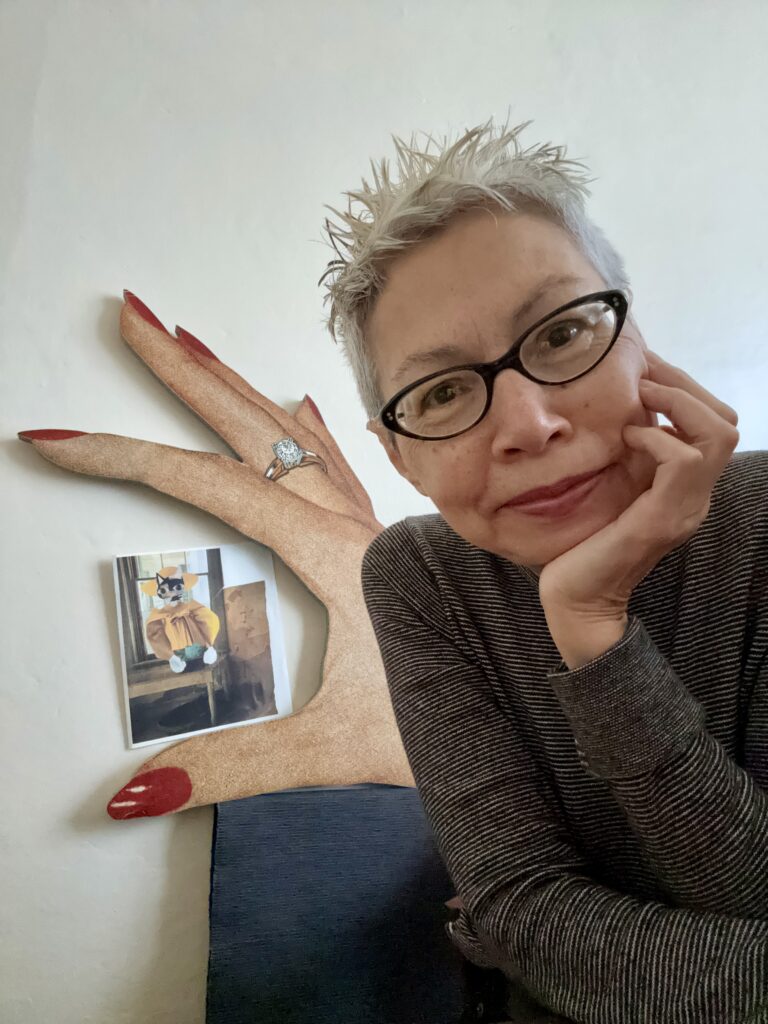January is National Mentoring Month, a time to recognize the life-changing power of mentorship and inspire others to get involved. For Connie Jeung-Mills, volunteering as a mentor through the SF Ed Fund – starting in 2023 – has been a deeply personal journey rooted in her own experiences growing up as a mixed-race student in predominantly white public schools. Despite facing discrimination, Connie was fortunate to find mentors who made a profound impact on her life. Today, she pays it forward by guiding young people through the challenges of identity and self-discovery in an increasingly complex world. Through creativity, authenticity, and consistency, Connie has witnessed how mentoring transforms both the mentor and the mentee. In this Q&A, Connie shares her story and reflects on the powerful connections that make mentoring such a meaningful commitment.
SF Ed Fund (SFEF): Can you share your personal story and what inspired you to become a mentor with the SF Ed Fund?
Connie Jeung-Mills (CJM): Growing up as a mixed-race student in majority-white public schools, I experienced discrimination but I was lucky to meet adult mentors along the way who took me under their wing. That experience had a profound effect on me and inspired me to become a mentor myself. I’m also part of the queer community and as we face backlash in the current political climate, I recognize the need to have mentors who can support and guide queer, non-binary and trans youth through identity issues.
SFEF: What have you learned about yourself through mentoring, and what have you learned from your mentee?
CJM: I quickly learned that building relationships with young people is about being consistent and showing up with a fresh, positive state of mind, rather than obsessing about saying the right thing or privately worrying that progress is too slow. And because young people easily detect insincerity, mentoring is a constant reminder to be my most authentic self. So I’m willing to share my own anxiety about being judged or feeling uncool in the public space. The mentees often make me question my own beliefs and they’ll even offer me good life advice! Plus, I’ve discovered how happy I feel when I can provide mentees with a creative outlet that bolsters their personal confidence.
SFEF: What has been the most rewarding moment of your mentoring experience so far?
CJM: One of my mentees was extremely shy and nervous about speaking English. She didn’t understand what mentoring was about but she was willing to show up each week and see how things went. As we bonded over crafts projects, she slowly opened up with questions about her queer identity and I served the role of confidante. Our sessions bolstered her conversational skills and confidence to the point where she was selected to give a speech in English at her eighth-grade graduation. It was such an accomplishment to witness firsthand and I felt like a proud auntie at the ceremony!
SFEF: Why do you believe mentoring is important for both the mentor and the mentee?
CJM: Making a commitment to mentor a young person provides a unique emotional experience that you may not realize is lacking in your life. It’s quite freeing to break from your usual routine and walk into a completely different space than your normal work life and circle of friends. Mentoring provides a mirror to view your younger self and reflect on your own life journey. It helps you gain empathy and compassion toward young people who face more obstacles than ever before. For mentees, the relationship provides a space to interact with an adult outside of their family who can listen to their everyday struggles without judgment or criticism. Adults can be great role models of independence and self-determination for young minds to observe. Knowing an adult who supports and cultivates their dream can make a big difference.
SFEF: What advice would you give to readers who might want to become a mentor through the SF Ed Fund?
CJM: If anything I’ve said resonates with you, then I would encourage you to chat with the SF Ed Fund staff or volunteers to see if mentoring is something you might want to try. A weekly commitment may seem like a lot but to be honest, the average person wastes time every week scrolling on their phone. Maybe reclaim that time for mentoring and feel good that you’re helping to make the world a better place!
SFEF: Anything else you want to share?
CJM: Before I signed up to be a mentor, I fully researched various nonprofits to find the right fit for me. I chose SF Ed Fund due to their solid partnership with SFUSD and their proven impact on the lives of young people in the city I call home. Plus, their commitment to supporting mentors throughout the process is stellar so if you decide to be an SF Ed Fund mentor, you’re in good hands!

Connie poses with a cat collage created by one of her mentees

